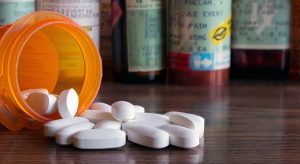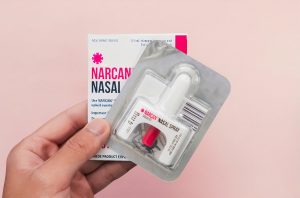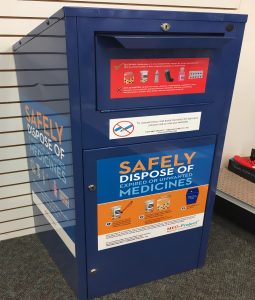The opioid crisis is a national issue with few easy answers. The federal government reports that two-thirds of drug overdose deaths involve opioids, so public health officials nationwide are working tirelessly on methods of treatment, prevention, and education. Locally, Thurston County Public Health and Social Services (TCPHSS) facilitates the Thurston County Opioid Response Task Force. The Thurston County Board of Health oversees the Thurston County Opioid Response Plan to keep residents safe and informed.

Opioids in Thurston County
Thurston County Public Health and Social Services report that the health impacts of opioids on local residents have been significant. In June 2018, the epidemic was declared a public health crisis in our county by the Thurston County Board of Health. This led to the creation of the Thurston County Opioid Response Task Force, which works to monitor and facilitate changes to their ongoing response and stay up to date in order to make changes to their response plan as needed. The response plan has been updated twice over the past several years to account for the community’s changing environment.
The Thurston County Opioid Response Plan uses a community approach emphasizing advancing equity, reducing stigma, eliminating barriers, and creating opportunities. They help all groups and populations and prioritize a focus on impacted populations like Black, Indigenous, and People of Color (BIPOC), youth, unhoused residents, individuals with language barriers, or those involved with the criminal and legal systems. “Currently, heroin is less common and fentanyl is more available compared to other drugs,” reports the Task Force on opioid use in Thurston County. “Fentanyl has an increased risk of overdose due to the strength. We are finding that people are not calling 911 for medical assistance fast enough, which is very important in the event the substance involved is fentanyl.”
Though used by the healthcare industry, fentanyl is also a street drug. It comes in powder, rock, or pill form and can be mixed with other drugs to get high. Because of its strength, it is all too often involved in fatal overdoses.
What to Do if you Suspect an Opioid Overdose

If you suspect someone is overdosing on opioids, the first step recommended is checking for a response. “Shaking the person and rubbing your knuckles across their sternum. If no response, call 911 and let them know that someone is unconscious. Administer naloxone if you have it and follow directions from the 911 operator.”
Naloxone, the generic form of NARCAN Nasal Spray, is a life-saving medication that reverses an opioid overdose. Both are available through health insurance and at local pharmacies. Naloxone can now be mail ordered – at no cost – through the state Stop Overdose website. People should have naloxone available to them, at home, school, and work. If you can personally carry naloxone, this helps reduce response time in the event you see an overdose.
Staying Open and Judgement-Free
Some of the engrained misconceptions about substance use have made response difficult, including that use is a moral failure. Treatment does work however the process is more difficult to navigate and pay for than you might expect.
Members of the Task Force stress, “Shaming and forced treatment have been shown not to work. To learn how to have a conversation with someone you care about, visit the Learn About Treatment website.” You can also find local treatment options via the Washington Recovery Help Line, which operates a 24/7 helpline at 1-866-789-1511.

The Task Force also recommends having open, honest communication with your kids. Parents and caregivers of young adults and teens can find resources geared towards their age group thanks to community partners. If there are children in your home, practice safe storage by not leaving medication in your bag, purse, car, or reachable medicine cabinet, and use child-resistant lids. There are also free medication drop boxes for unused or expired prescriptions and over-the-counter medications.
Local workplaces, agencies, schools, and events can receive Overdose Education & Naloxone Rescue Kit Training thanks to the Thurston County Opioid Response Program. To learn more, contact Kateri Wimsett at kateri.wimsett@co.thurston.wa.us.
Want to learn more about the Thurston County Opioid Response Task Force? You can find details and minutes of past meetings or the date and time of upcoming meetings through their website. Ask to be added to the mailing list by contacting Katie Strozyk at katie.strozyk@co.thurston.wa.us.
If you or someone you love needs TCPHSS services, call 360.867.2500 between 9 a.m. and 4 p.m. to speak with them about available options. And remember, in the case of an emergency, dial 911 immediately.
Follow TCPHSS on Facebook, Twitter, and Instagram for updates, events, news, and the latest research. We’re all in this together and working together is how we’ll succeed.
Sponsored













































